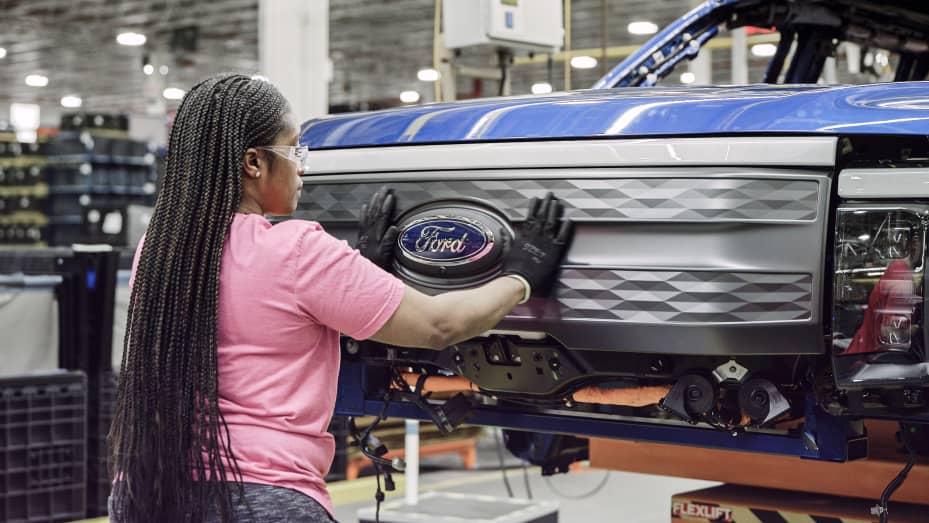According to Ford’s CEO Jim Farley, 65% of U.S. dealers agree to sell electric vehicles under the company’s investment programs

According to CEO Jim Farley’s announcement on Monday, approximately 65% of Ford Motor’s dealerships have agreed to sell electric vehicles as the company invests billions in expanding production and sales of battery-powered cars and trucks.
Farley says that around 1,920 of Ford’s nearly 3,000 dealers in the United States agreed to sell electric vehicles. According to him, roughly 80% of those dealers selected the higher level of EV investment.
Under one of two programs, Ford offered its dealers the opportunity to become “EV-certified,” requiring either $500,000 or $1.2 million in anticipated investments. The “elite” certification and allocation of additional EVs are provided to dealers in the higher tier, which entails upfront costs of $900,000.
In contrast to Ford’s rival across town, General Motors, dealers can continue to sell Ford vehicles even if they choose not to sell electric vehicles. Dealers of Buick and Cadillac who are unwilling to invest in EV sales have been offered buyouts by GM.
When Ford reopens the certification process in 2027, dealers who have decided not to invest in electric vehicles may do so.
“We think that the EV adoption in the U.S. will take time, so we wanted to give dealers a chance to come back,” Farley said during an Automotive News conference.
Ford’s plans to sell EVs have been a point of contention since the organization split off its all-electric vehicle business earlier this year into a different division known as Model e. Farley said the automaker and its sellers expected to bring down costs, increment profits and deliver better, more reliable customer sales experiences.
Also, Farley said on Monday that the auto industry’s traditional franchised system costs the manufacturer thousands of dollars more than a direct-sales model.
Direct-to-consumer sales have largely been viewed as a profit-maximizing profit by Wall Street analysts. However, when it comes to servicing its vehicles, Tesla, which operates under the sales model, has experienced growing pains.
The Ford F-150 Lightning pickup, Mustang Mach-E crossover, and e-Transit van are among the current lineup of Ford’s all-electric vehicles. As part of a plan to invest tens of billions of dollars in the technologies by 2026, the automaker is expected to introduce a slew of additional EVs worldwide.